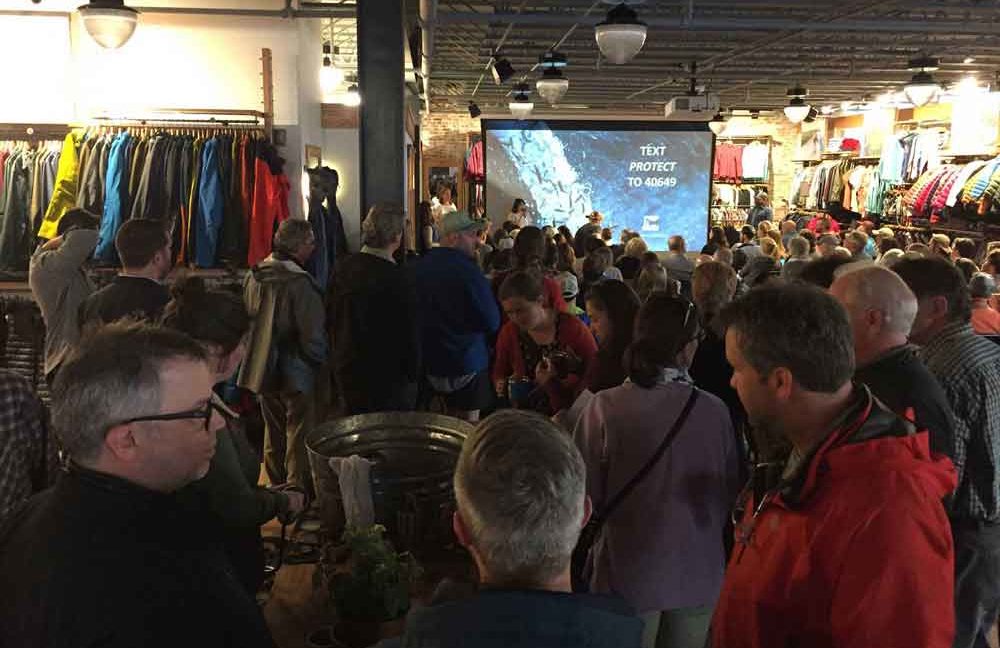Open letter to Patagonia: Let’s not forget that we’re all in the same boat
Last night, members of the Global Aquaculture Alliance (GAA) staff attended a local screening of “Artifishal,” a documentary film produced by outdoor apparel company Patagonia. The film questions the role of fish hatcheries in supplementing recreational and commercial salmon and trout fisheries in the Pacific Northwest, alleging they do more harm than good for wild fish populations. The relationship between hatcheries and politics — that hatcheries exist largely for the benefit of rural economies and the pleasure of recreational fishermen — is the target of the film. Nonetheless, at the tail end of the 90-minute film, salmon aquaculture gets caught in the crosshairs.
 To no surprise, the film came off as one-sided and heavy-handed; no representatives of commercial aquaculture or fisheries were interviewed for the film. The film panned salmon farming on disease and escapes, leaving the audience at a packed Patagonia store in Freeport, Maine, with one conclusion — that open net-pen aquaculture is destroying wild fish populations. (When asked about the lack of objectivity in the film after the screening, the filmmaker, Josh “Bones” Murphy, skirted the question, maintaining that he had full editorial control over the final product.)
To no surprise, the film came off as one-sided and heavy-handed; no representatives of commercial aquaculture or fisheries were interviewed for the film. The film panned salmon farming on disease and escapes, leaving the audience at a packed Patagonia store in Freeport, Maine, with one conclusion — that open net-pen aquaculture is destroying wild fish populations. (When asked about the lack of objectivity in the film after the screening, the filmmaker, Josh “Bones” Murphy, skirted the question, maintaining that he had full editorial control over the final product.)
Patagonia has mastered the art of taking a controversial environmental and/or social stand and backing it with savvy marketing. The Artifishal film and website make a simple ask — sign a Change.org petition urging the National Oceanographic and Atmospheric Administration and the Washington Department of Fish and Wildlife to stop stocking the state’s rivers with hatchery fish because they’re contributing to the decline of Southern Resident killer whales in the Salish Sea. As of May 1, more than 136,000 people had signed the petition, with a goal of 150,000. (That’s a lot of new email addresses that Patagonia can market its goods to, including its line of Patagonia Provisions-branded sockeye salmon, pink salmon and smoked mussels.)
Savvy marketing tactics and the absence of objectivity aside, what’s truly disappointing about the film is that aquaculture’s challenges are summed up in 10 minutes. In the film, aquaculture is simply collateral damage, an easy target. Imagine whittling down the textile industry’s challenges to 10 minutes? And what about the opportunities? Aquaculture’s role in feeding the world’s burgeoning population, which is expected to reach 10 billion by 2050, cannot be ignored, even if it distracts from the film’s message. In a world of finite resources, aquaculture is more resource efficient than land-based agriculture. Aquaculture’s ability to create jobs and innovate can’t be ignored, either. I guess those scenes landed on the cutting room floor.
Let’s not forget that we’re all in the same boat. The for-profit Patagonia is no different than the not-for-profit GAA. Even though one is much bigger than the other, we both face expectations for growth and prosperity while staying true to our values of sustainability and responsibility. Yvon Chouinard, founder of Patagonia and executive producer of Artifishal, knows that as well as anyone. Mistakes are made, but so are corrections, often quickly. It’s about staying on a path of continual improvement. There’s always more to the story, and that’s where Artifishal strikes out.
— Steven Hedlund, Communications Manager, Global Aquaculture Alliance
Editor’s note: This open letter to Patagonia was shared with the trade and consumer press as part of GAA’s new media monitoring and outreach campaign. Using a web-based media-monitoring tool, GAA has ramped up its outreach to the press in an effort to strengthen aquaculture’s reputation amongst the public and bolster the visibility of GAA’s pre-competitive education and advocacy work as well as its industry-leading Best Aquaculture Practices third-party certification program. To support the campaign and receive quarterly reports on the campaign’s progress, please become a GAA member. Membership starts at $50 for individuals.



